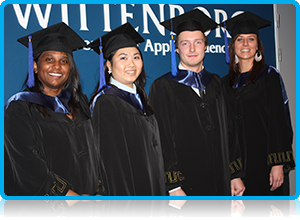Exclusive: Dutch Prime minister Mark Rutte’s office -period international students are allowed to stay in the Netherlands after graduation to look for a job might be extended
Exclusive: Dutch Prime minister Mark Rutte’s office -period international students are allowed to stay in the Netherlands after graduation to look for a job might be extended
Dutch Prime minister Mark Rutte’s office has exclusively revealed to Wittenborg University that the period international students are allowed to stay in the Netherlands after graduation to look for a job might be extended.
The ministry of education is currently in talks with the ministry of justice about changes to regulations that will ease the way for retaining talented foreign graduates. The duration of the job search year (the so-called “zoekjaar”) is part of the discussions.
The period international students are allowed to stay in the Netherlands after graduation to look for a job might be extended.
Dutch Prime minister Mark Rutte’s office has exclusively revealed to Wittenborg University that the ministry of education is currently in talks with the ministry of justice about changes to regulations that will ease the way for retaining talented foreign graduates. The duration of the job search year (the so-called “zoekjaar”) is part of the discussions.
 “For example, before this summer we’ll be putting forward a proposal with changes to the search year,” a spokesman for Rutte’s office said in an email to one of Wittenborg’s recent graduates.
“For example, before this summer we’ll be putting forward a proposal with changes to the search year,” a spokesman for Rutte’s office said in an email to one of Wittenborg’s recent graduates.
Currently international students are allowed to spend a period of up to twelve months in the Netherlands to find a job as a highly skilled migrant (kennismigrant) after graduation.
However, the Dutch Socio-Economic Council (SER) in a report last year advised that this period afforded international students might not suffice. The spokesman said the Dutch government is aware of the problems that international students and knowledge workers face when starting a career in the Netherlands.
“That is why the ministery of education (OCW) has asked the SER to give advice on the subject.” The SER comments were contained in a document called “Make it in the Netherlands” and served as a basis for an extensive action plan on the retention of foreign talent in the Netherlands that was released late last year.
Rutte was challenged on the obstacles facing international students when he had talks with students from institutes of higher education in Apeldoorn in February, including Wittenborg University. He invited students from the university to elaborate on the problems they face in follow-up correspondence.
Soon after Rutte’s visit the university was also called on by the minister of education, Jet Bussemaker, where the same issues were raised. This includes companies having to pay in excess of 5 000 euros if they wish to employ a so-called “kennismigrant”, non-EU/EEA students being restricted to 10 hours of work per week, little at main career events aimed specifically at international students.
Rutte’s office said the Dutch government is aware of the problems facing international students when starting a career in the Netherlands. "There is a lot of improvement to be made in this area. Rules and regulations have to be changed and the availability of information has to be improved. This is a process that will take some time, but which is a clear priority- not just for the owe, but for all organizations involved in the action plan. While the action plan has only just kicked off, first results will be visible shortly."
WUP 3/4/2014
©Wittenborg University Press
524 words
